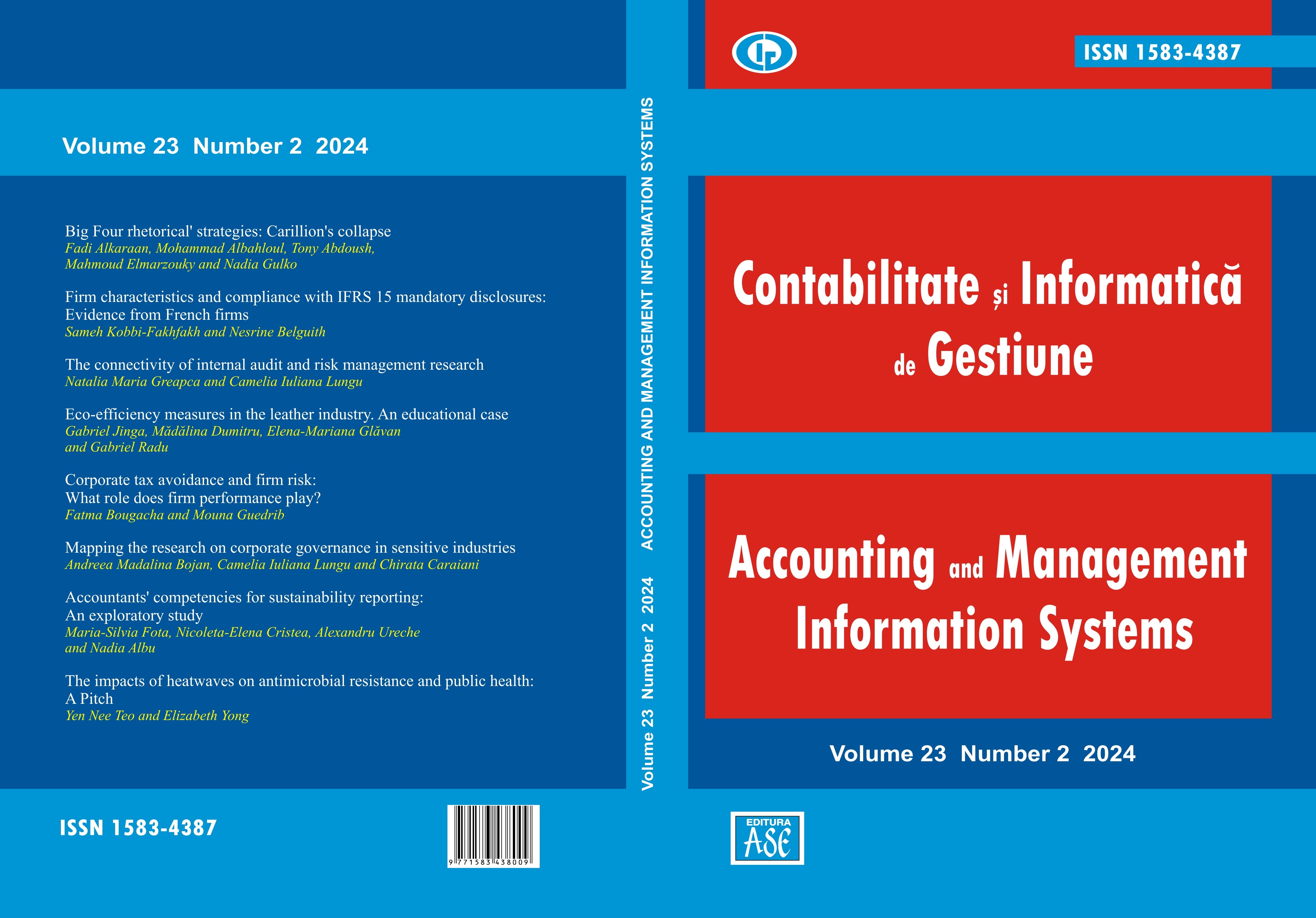Big Four ‘rhetorical’ strategies: Carillion’s collapse
Big Four ‘rhetorical’ strategies: Carillion’s collapse
Author(s): Fadi Alkaraan, Mohammad Albahloul, Tony Abdoush, Mahmoud Elmarzouky, Nadia GulkoSubject(s): Accounting - Business Administration
Published by: EDITURA ASE
Keywords: Financial reporting; auditing; rhetorical strategies; impression management; content analysis; accounting; discourse analysis;
Summary/Abstract: Research Question: How have the Big Four accounting firms taken advantage of impression management in reacting/responding to the public scrutiny regarding Carillion plc’s collapse? Motivation: Despite the contribution of previous research through narrative analysis domains, the conceptualisation of narrative practices remains a relatively neglected area in the extant accounting literature. This study attempts to offer insights into this domain of impression management strategies, and to examine the influencing role of external auditors on corporate strategic choices through consultancy and advisory activities. Idea: Our conceptual framework is based on Aristotle’s three pillars of rhetorical proofs: ethos, logos, and pathos. We emphasise repetitive rhetorical slogan strategies embedded in their letters in response to public inquiries. Our discussion of the findings is also based on lenses underlying domains of impression management. Data: Data underpinning this study based on Big Four accounting firms evidence /response to public investigation regarding companies collapses, (dated 2nd February 2018) to the public inquires (dated 25th January 2018) by the two parliamentary committees regarding the Carillion’ collapse. Tools: The study employs critical discourse analysis of persuasive strategies embedded in their responses to public inquiries regarding the collapse of Carillion plc, one of the top largest construction companies in the UK. Findings: Findings of our investigation of the Big Four accounting firms’ evidence to public scrutiny reveal how Big Four strategically use repetitive rhetoric slogans to shape optimistic future performance, which might be different from the feasible reality. They convey two impressions through their responses to public inquiry on Carillion failure: (i) their audit practices were good all through their engagement activities with Carillion, and (ii) they are not to blame for Carillion’s failure. The Big Four accounting firms engaged with Carillion beyond the conventional auditing norm; they engaged deeply in Carillion’s strategic choices through steering and controlling organisational resources by means of consultancies/ advisory activities and acting roles. Contribution: This study adds to the extant literature regarding how Big Four strategically use repetitive rhetoric slogans to shape optimistic future performance, which might be different from the feasible reality. Findings of this study have theoretical and managerial implications. Research limitations: Due to the use of qualitative paradigm, our findings cannot be generalised. Yet, these limitations do not underestimate the contribution of this study to the extant literature on auditing practices.
Journal: Journal of Accounting and Management Information Systems
- Issue Year: 23/2024
- Issue No: 2
- Page Range: 295-316
- Page Count: 22
- Language: English

